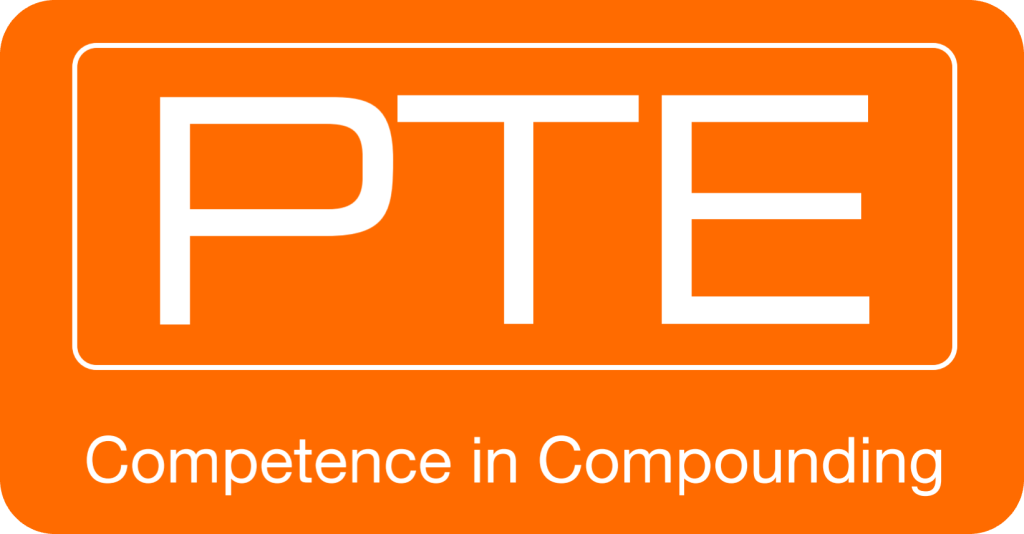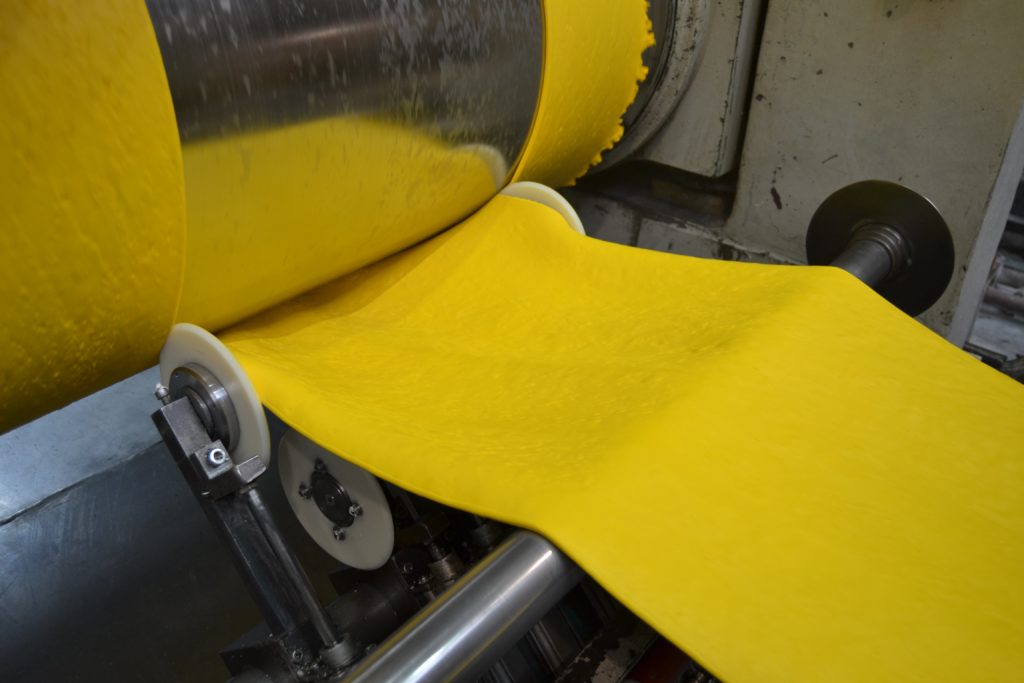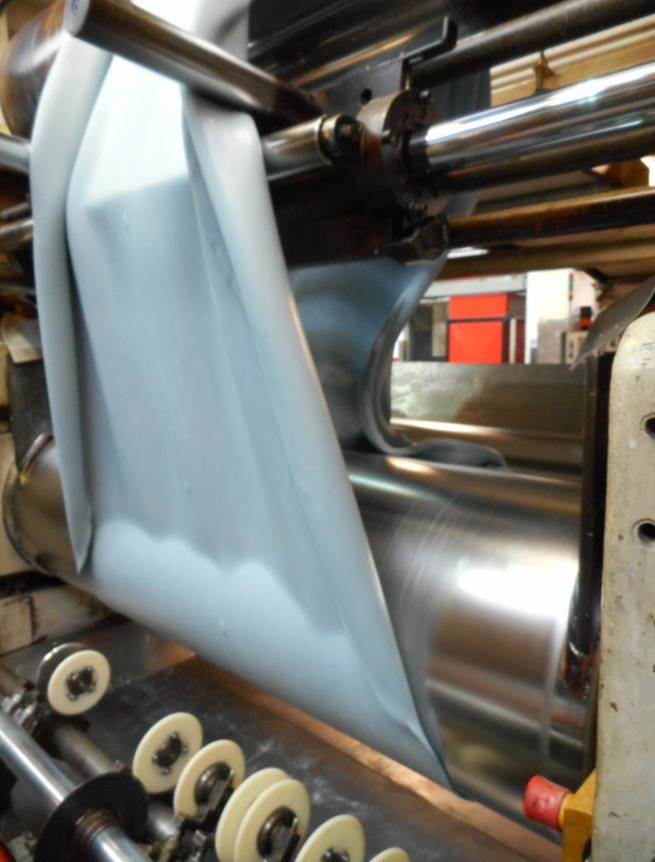PRODUCTS
COMPOUNDS
Only high-quality raw materials from selected certified suppliers are used for PTE compounds. A highly trained team from purchasing, laboratory and technology ensures strict compliance with all specifications and PTE’s own quality standards. This is the only way to ensure that the high demands on our compounds are met.
It is the right mixture that matters!
Our raw material portfolio currently consists of about 1.500 materials. All polymers such as NR, EPDM, SBR, NBR, NBR/PVC, HNBR, BR, IR, CR, ACM, AEM, CSM, ECO, fluoroelastomers and silicone are processed.
The heart of every compound is the polymer. When selecting the right material, numerous properties and the subsequent application area must be taken into account.
Applications
The compounds produced by PTE are processed in a wide range of industrial sectors, such as automotive and commercial vehicle industries, railways, cables, construction and mining, industrial rubber goods and food and medical technology.
Typical applications include:
-
- rubber-metal parts for engine, chassis and body bearings
- sealing systems / profiles
- hoses
- tire mixes
- drive parts
- wipers
- doormats
- valves
- door seals in refrigerators and washing machines
- roller covers for the printing, textile, metal and plastics industries
- cable manufacturing
- textile coatings
- bridge and building bearings
- track bed mats
- conveyor belts
- roof, pipe and water seals
- tunnelling
- corrosion protection/container linings
We shall gladly support you with the realization of your project.
POLYMERS & FEATURES
PTE’s polymer portfolio includes a broad portfolio of materials and provides effective, reliable solutions for a wide range of applications.
Based on their specific properties or special performance characteristics, the appropriate polymers are selected for our compounds. From natural rubber and synthetic rubbers to high-performance fluoroelastomers, they are suitable for use in the general rubber industry, but also – for demanding applications – in the chemical and automotive industries.
When designing your product, draw from our extensive portfolio.
Natural rubber: excellent mechanical and very good elastic properties; extremely good abrasion resistance; good resistance to water, alcohols, glycols; medium resistance to acids and alkalis; resistant to mineral oils and fuels
Ethylene-propylene-dien rubber: excellent ozone, aging and weather resistance, low pressure deformation residue even at high temperatures, very good resistance to hot water, hot steam, acids, alkalis and hydraulic fluids based on glycol water
Acrylonitrile butadiene rubber: very good abrasion properties, high strength level, good resistance to oil and fuels, low gas diffusion, good cold flexibility, high shock elasticity
Styrene butadiene rubber: high strength, elasticity, resistance to tearing, resistance to aging and heat, very good abrasion properties good resistance to water, alcohols, glycols, diluted weak acids and alkalis
Butadien rubber: good resistance to water, alcohols, glycols; excellent abrasion resistance, high elasticity, low damping, low dynamic heat generation, unstable against mineral oils and fuels
Hydrogenated nitril-butadien rubber: resistance to mineral oils, fuels and oxidizing media, very good ozone, aging and weather resistance, high tear resistance, very good abrasion properties
Chloroprene rubber: high flame retardancy, good ozone, aging and weather resistance, good resistance to paraffinic mineral oils and fats, refrigerant such as ammonia etc., good mechanical properties and favourable elastic behaviour even at low temperatures
Epichlorohydrin rubber: excellent ozone resistance, very low gas permeability, good resistance to mineral oils/fats and aliphatic hydrocarbons
Polyacrylate rubber: very good resistance to mineral oils, additives and lubricants, very good ozone, aging and weather resistance, good pressure deformation residue
Ethylene acrylate rubber: very good oil resistance, flame retardant, good damping properties, very good ozone, aging and weather resistance
Fluororubber: very good temperature resistance, high chemical resistance (minerals, oils, greases and non-polar media), excellent ozone, aging and weather resistance, high gas resistance
Butyl rubber: very low gas permeability, good ozone, aging and weather resistance, good resistance to hot water, acids, alkalis and polar solvents
Chlorosulfonated polyethylene: very good ozone, aging and weather resistance, good resistance to oxidizing chemicals, organic and inorganic acids and bases, good flame retardancy


Special Applications
PTE DRINKING WATER COMPOUNDS
Water is a precious resource that must be protected. Since the middle of the 20th century, the chemical industry has been producing materials suitable for the production of drinking water pipes. The installation materials must be safe for health, odourless and tasteless, stable in terms of use and available in consistent quality.
The production of drinking water compounds requires a careful selection of the raw materials as well as stable processes in order to prevent possible effects of the rubber parts on the microbiological properties of the water and thus a possible danger to this habitat.
With the Drinking Water Regulation (TrinkwV), the German Umweltbundesamt (UBA = Federal Environment Agency) has established binding evaluation bases for materials and materials in contact with drinking water. Only materials and materials that comply with these guidelines may be used for the construction or installation of plants for the production, treatment and distribution of drinking water. The guideline presents the current state of science and technology with regard to the hygienic requirements for elastomers in contact with drinking water and is composed of three parts: the positive list of usable raw materials for the production of elastomers, the prescribed test methods and the test values to be complied with in the tests with a limit value character.
All products and processes must be certified by an accredited laboratory for drinking water. This standard challenges our customers but we at PTE can quickly and competently offer a reliable solution thanks to our innovative development work.
The drinking water compounds produced and certified by PTE comply with the requirements of the European standards in Germany (Elastomer Guideline), Great Britain (WRAS) and France (ACS). Our portfolio includes EPDM compounds in various hardness levels, which can be processed in both extrusion and moulding processes.
PTE EXTRUSION COMPOUNDS
PTE offers specially developed cellular rubber compounds, which are used for the production of extrusion profiles, e.g. for the sealing of bodies.
These compounds meet the typical OEM specifications.
Carrier compounds can be used for a wide hardness range. These high-performance materials are designed for the good sealing performance required for lips.
With our compounds for the visible area, a low gloss level can be achieved.
New requirements such as electrical insulation properties are becoming increasingly important. Here too, we can provide suitable compounds for different insulation requirements and in the common hardness range.
IM compounds for joinings and corner joinings complete the portfolio.
EXTRUSION Compounds


 Deutsch
Deutsch Español
Español




